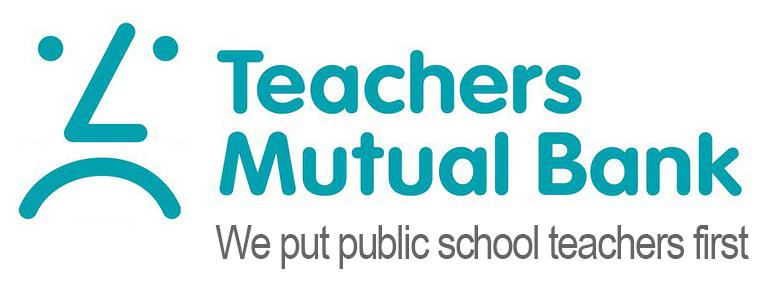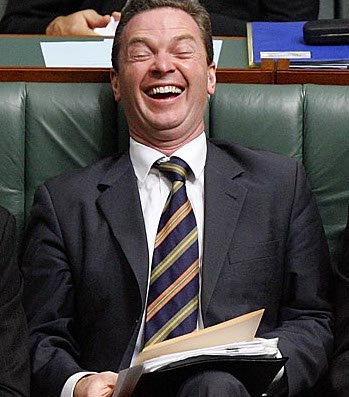
The following is a letter I wrote a couple of months ago to John Kouimanos, the head of Teachers Mutual Bank, just prior to the last AGM. My annoyance ( to put it mildly) is explained in the letter. To their credit, I did receive a communication back from the Bank about the letter, and I was going to leave it at that.
But today I found out that this nonsense is still endemic to the way TMB thinks… They are making a promo video and have asked for members to take part in it… except any members that don’t teach in the public system of course. That really pissed me off, so I decided to publish the letter here on my blog. I’d be interested in your thoughts in the comments.
Dear John,
I’m writing to express my profound disappointment at Teachers Mutual Bank’s continuing lack of will to create a fair and equitable entry point for ALL teachers to become members. I raised this concern two years ago at the Annual General Meeting, although I understand that many other members have expressed similar concerns over it in the past.
I joined the Teachers Credit Union in 1985 in my very first year of teaching. Since that time I have continually banked with the organisation, taken out several personal loans including a current car and home loan, and I use the bank’s insurance and travel services. I deposit my pay into the bank each fortnight, and I have introduced both of my young adult children to TMB for their personal banking needs. I trust that you would see me as a loyal, long term customer.
Despite all this I remain perplexed and disappointed by the Common Bond rules governing the conditions under which Teachers Mutual Bank accepts new members, specifically in the way that teachers in the catholic and independent sectors are not openly welcomed as members in their own right.
The Common Bond rules of membership specifically require any person who wishes to join the bank based on their professional life as a teacher to be employed only in an Australian government school or teaching service. Furthermore it requires those teachers to be members of an education union. (Appendix 2 Common Bond, A2-1:1a) Of course there are other ways of becoming a member, including being employed by a related organisation, being a clerical assistant or teacher’s aide, being the spouse, child, parent, etc of an existing member or even someone who works for TMB.
However, nowhere in that collection of entry points to membership is a teacher employed by a catholic or independent school mentioned. It seems that a clerical assistant in a government school, the child of a member, or a student teacher still at university are all more openly welcomed into Teachers Mutual Bank than a teacher in a non-government school.
I would like an explanation as to why this is the case.
Telling me that there are other ways that a non-government school teacher could join TMB is an unsatisfactory response. Most of these other ways are little more than “workarounds” for a non-government teacher to become a member, based on whether they happen to be related to someone who is already a member, or some other equally tenuous link.
As a non-unionised teacher who currently works in the independent sector of Australian education, I’m disappointed (and more than a bit annoyed) that if I were to try to join the Teachers Mutual Bank today in my capacity as a teacher with over 25 years of in-school experience, I would be refused. Sure, I could try to find some other “backdoor” way to join, such as being the spouse of an existing member, having a particular brand of health insurance, or some other bizarre criteria that in no way relates to the fact that I AM A TEACHER. The core issue remains that because I work in a non-government school I would be refused membership on my own merits as an Australian educator. This is not 1966 any more, and this anachronistic favouring of unionised, state school teachers at the expense of other sectors needs to change.
I am saddened by the TMB management’s unwillingness to address this inequity and propose an amendment to the constitution that would allow the question to be voted upon. (I do realise that this has been voted for in the past and narrowly defeated, but the fact that it does not get raised at every AGM until it changes is unsatisfactory to me. Please understand that my concerns on this issue are not for my own personal circumstances. I’m already a member, so this issue down not affect me directly. It is the principle that matters here. My concerns are based on fairness, equity and a desire to see Teachers Mutual Bank rise to its own philosophical high ground of being an organisation that aims to “give teachers and their families better options”. Apparently, only certain kinds of teachers. If, as the values statement on your website claims, your organisation is truly “100% committed to doing what is right” then addressing this inequity should be a priority.
I am not the only person who feels this way. I’ve heard many other members express the same thoughts. The fact that this issue keeps coming to the surface, yet the management of TMB does not make a genuine effort to address it is, frankly, unsatisfactory. When I read the statement in the recent AGM invitation that “a major strategic initiative of the Board and management over the coming years is to grow our membership” I was dumbfounded as to why you would not attempt to take aim at a rule that currently excludes a significant number of Australia’s teaching population from joining on their own merit as teachers.
Knowing that your constitution does not recognise my status as a teacher in an independent school makes me feel that perhaps Teachers Mutual Bank is not deserving of my continuing business. If I am not good enough to be accepted as a member based on my status as a teacher, regardless of the sector that I happen to work for, then perhaps I ought not be good enough to remain as a customer, with savings accounts, credit cards, insurance, a car loan and a home loan. If the bank would not allow me to join today as a member in my own right, then please explain why should I continue to give my banking business to you?
If you and your management team believe that solid principles are at the core of how TMB operates, then the inescapable conclusion is that the Common Bond needs to be changed.
The current proposals for Agenda items 7 and 8 at the upcoming AGM do not in any way address these concerns and are merely dancing around the real issue. Despite the suggestions to the contrary from your customer service representative in a recent phone call, increasing the ceiling on the affinity rule (A2-1:3) does not solve the problem. Increasing the number of people who have an “affinity with the company” (“the company” being TMB) from a fixed 5000 to a more general 20% of membership does nothing to address the bias against non-government school teachers.
One more thing… In the current competitive Australian banking environment, Teachers Mutual Bank needs to realise it has one very specific and unique value proposition – it claims to be a bank run by teachers, for teachers. Excluding some of those teachers because of the sector they happen to work in is wrong on every level. But I’d also point out that given the independent sector is growing faster than the public sector, and that teachers in independent schools do not have the same income ceilings as their colleagues in the government sector, the decision to exclude those independent school teachers is probably fiscally irresponsible as well. Assuming that the goal of TMB is to grow membership and profits, why on earth would you deliberately alienate the fastest growing, most cashed-up segment of your potential membership?
Given the past track record of TMB in addressing this issue I am not holding out much expectation of my concerns being addressed, but I cannot leave my feelings unspoken. As you can probably tell, I feel quite strongly about it, and while ever this inequity of the Common Bond remains I will find it difficult to see Teachers Mutual Bank as the fair, egalitarian and principled organisation I used to once think it was.
 Predicting the future is challenging.
Predicting the future is challenging.

 I’m not a big fan of Christopher Pyne. As far as I’m concerned, our new federal education minister has shown himself to be inept and completely out of his depth in his current portfolio. He continually implies that Australia’s teachers are less competent than they should be and that our students are not receiving a proper education.
I’m not a big fan of Christopher Pyne. As far as I’m concerned, our new federal education minister has shown himself to be inept and completely out of his depth in his current portfolio. He continually implies that Australia’s teachers are less competent than they should be and that our students are not receiving a proper education.